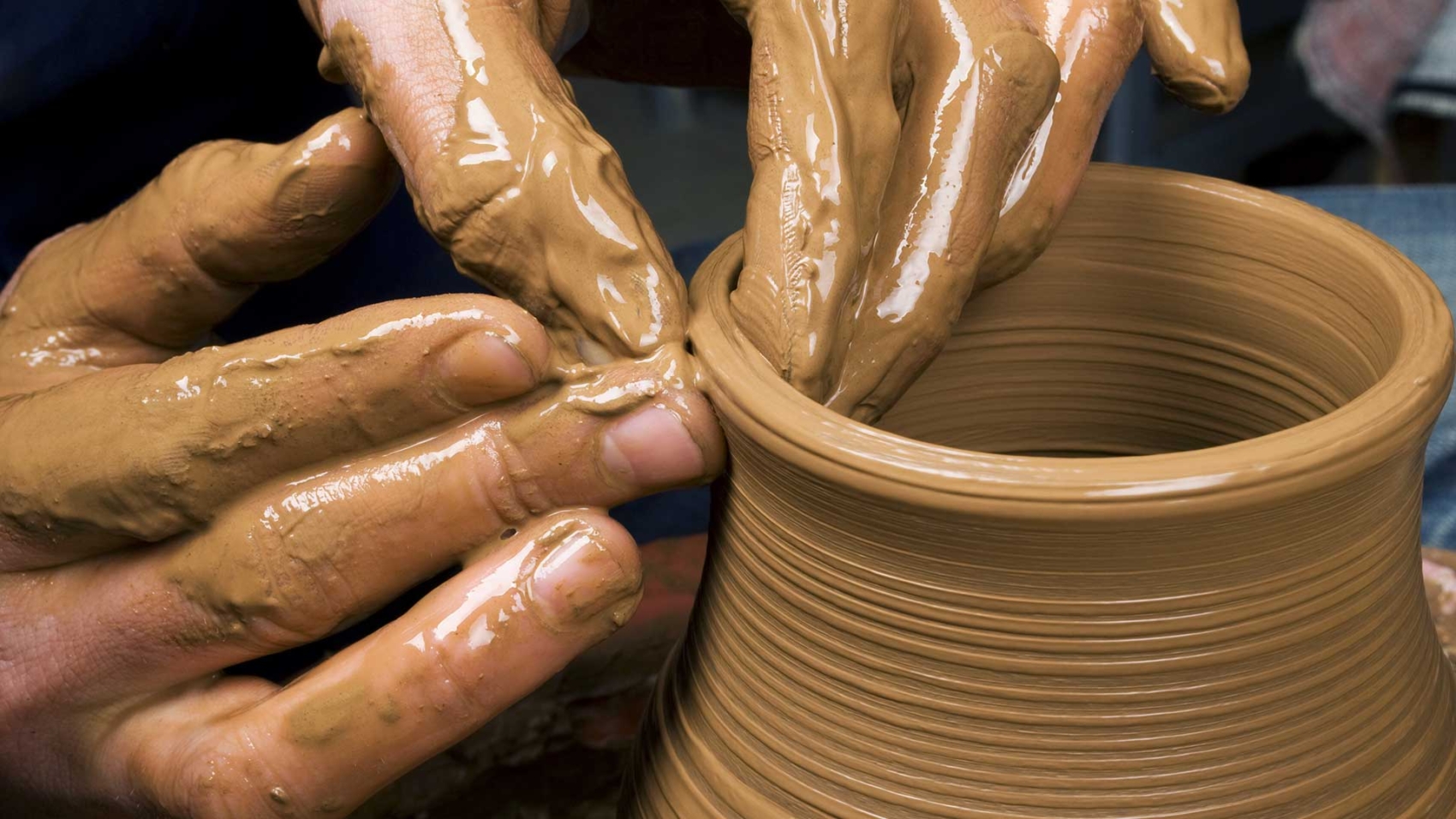The way the Creator helps us grow spiritually is through the suffering of the flesh.
Isaiah 64:8 tells us:
“Yet you, Lord, are our Father. We are the clay, you are the potter; we are all the work of your hand.”
Our father is YeHoVaH, and in this verse, Isaiah tells us that it was He who formed us. Don’t be deceived that He is talking solely about Adam, who was the first man who was “literally” formed from the dust of the earth! He is talking about all of us.
He who formed us, He who works with the clay, is The Potter. The word for “potter” in Hebrew is yotzer (יוצר), and it is related to the root of the verb “to form” (yatzar, יצר) in the verse from Isaiah above. The Father is The Potter, and it is He who forms us. But what does “form” mean in this context?
A clue to this meaning is provided by a striking prophetic image in Jeremiah chapter 18:1-6:
“This is the word that came to Jeremiah from YeHoVaH: ‘Go down to the potter’s house [yotzer], and there I will give you my message.’ So I went down to the potter’s house, and I saw him working at the wheel. But the pot he was shaping from the clay was marred in his hands, so the potter formed it into another pot, shaping it as seemed best to him. Then the word of YeHoVaH came to me. He said, ‘Can I not do with you, Israel, as this potter does?’ declares YeHoVaH. ‘Like clay in the hand of the potter, so are you in my hand, Israel’.”
Here we see how the potter works on his creation in the same way that YeHoVaH works with us – it is the very same idea that Isaiah mentions.
Returning to the question posed earlier, what does it mean that He forms us, that He works in us? Obviously, our body is already formed from the womb of our mother. But throughout our lives, we experience all kinds of situations that make us grow spiritually. The end product that the Creator wants to make of us is not about physical beauty or perfection but about spiritual identity.
But how do you grow spiritually?
This is an aspect that will probably displease our earthly natures. For remember, the spirit is at enmity with the flesh (Rom 8:7).
The way the Creator helps us grow spiritually is through the suffering of the flesh. How do we know? As the Hebrew makes clear, we can find the same linguistic root for the words “form” and “potter” in many words that we associate with suffering.
For example, the word “tribulation,” translated as “anguish” in Jeremiah 30:7, is tzara (צרה). The word for “Egypt” in Hebrew is Mitzraim (מצרים), understood as “a narrow and suffering place.” The “narrow path” that Yeshúa speaks of is the tzar (narrow, suffered) path.
And this is where we can associate suffering with the heavenly potter working on us all. Each of these examples has to do with our suffering, but at the same time, with an insatiable desire to reach out to our Creator, to call him from the midst of our tears, to surrender to his will.
In this context, we can understand how Shaul (Paul) says in Romans 5:3 that “we exult in tribulations, knowing that tribulation produces patience.”
And we can also understand how Ya’akov (James) says “Consider it pure joy, my brothers and sisters, whenever you face trials of many kinds, because you know that the testing of your faith produces perseverance” (1:2).
Joy within suffering is found when we realize that the Creator is working on us just as the potter works on his pot. Through the pressure of his fingers, he molds and refines his creation and removes roughness. It is when we identify with the spirit, rather than the flesh, that we can appreciate and even rejoice, in our times of trial and tribulation.
